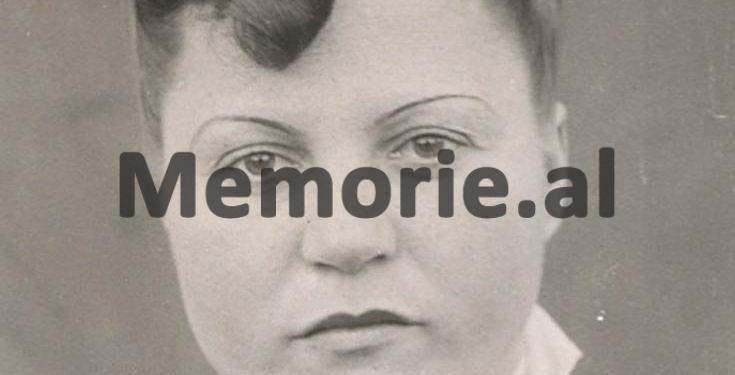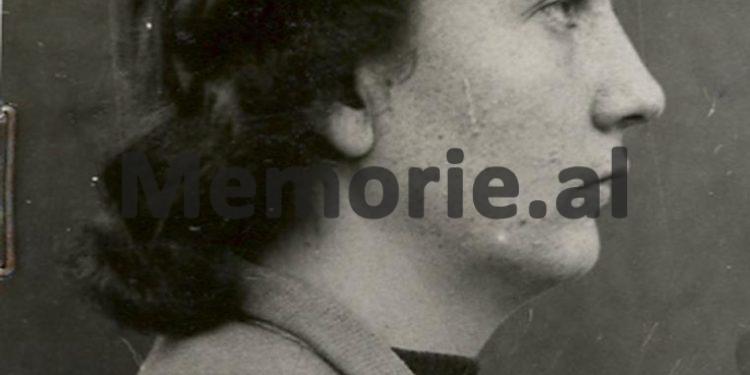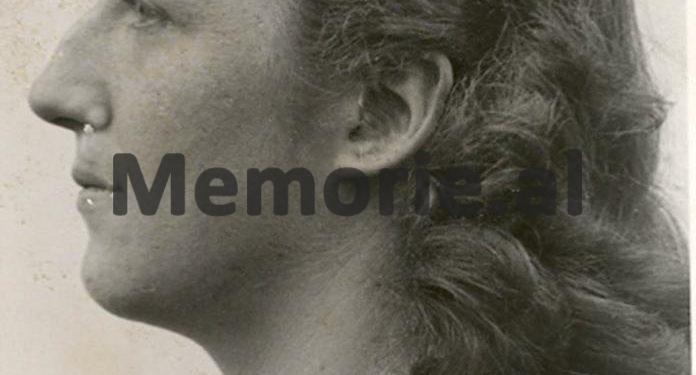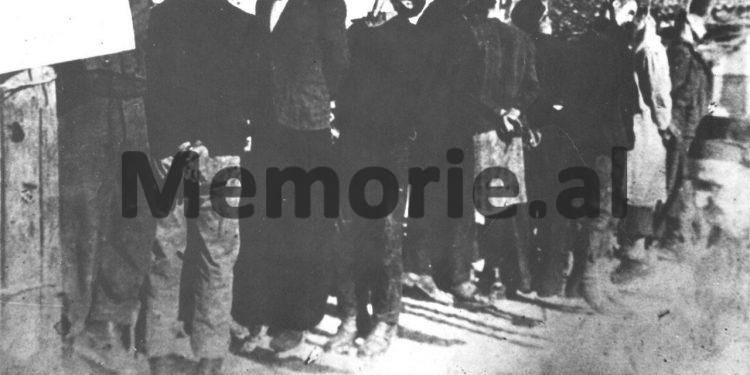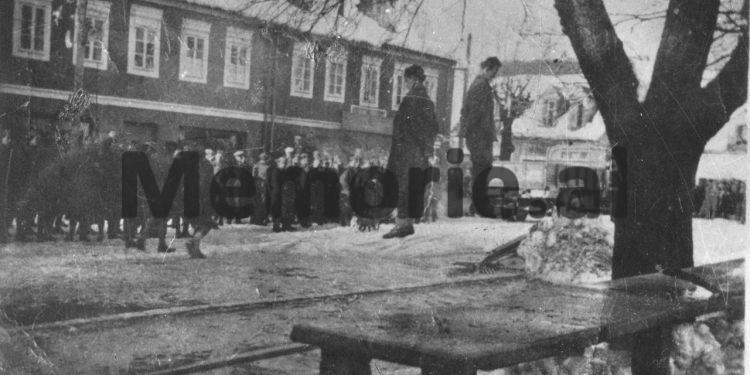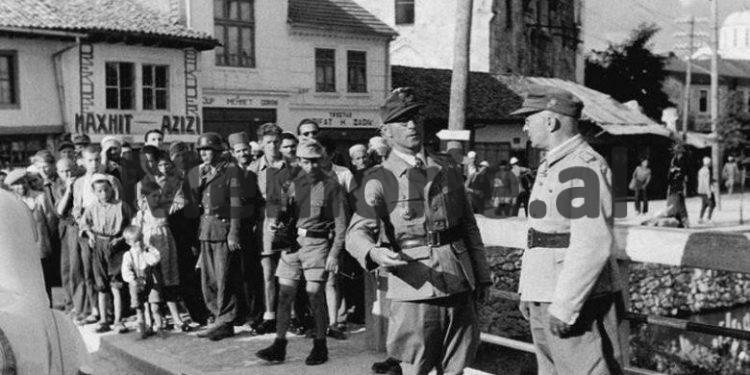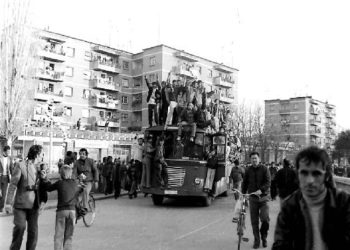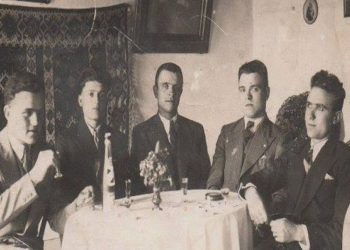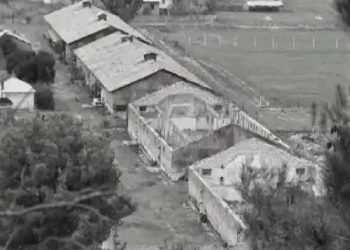Dashnor Kaloçi
Memorie.al publishes the unknown story of three German girls, Elsa Koch, Irmgrand Tennius and Erna Schubert, secretary and typist of the German Commander-in-Chief in Albania, General Fiztum, who on September 5, 1944, while leaving Albania with a German convoy, were taken prisoner on the Kukës-Prizren road by a partisan company that had ambushed there and then by order of Enver Hoxha were held hostage in Tirana, in an attempt to exchange them with dozens of prisoners held isolated in the Prishtina Camp. How the negotiations for an exchange for their exchange were carried out by Enver Hoxha’s envoy and Gestapo translator in Tirana, Petraq Pekmezi, who three days before the liberation of Tirana, was executed by a partisan team at his house on the Lana, and the tragic fate of three girls who suffered in the camps and prisons of communist Albania, until 1955 when the Khrushchev-Adenaur agreement on the exchange of prisoners was concluded…
“The Red and Black Monster of Europe”, was the title of the book that shocked the German public and beyond, in the mid-60s, by the author Elsa Koch. In this autobiographical book, the author describes in detail the prisons and concentration camps of communist Albania ruled by Enver Hoxha’s clique, where she and her two friends: Irmgrand Tennius and Erna Schubert, would spend about 12 years of their lives. But what connected the author of the book Elsa Koch with the small communist country of the Balkans and what was the reason that she spent twelve years of her life in the hell of Albanian prisons? How could she leave the most isolated country in Eastern Europe and why did she continue to maintain contact with this country that in her book would describe her as a real hell?! All these, etc., constitute what can be called a rare adventure of three German girls, that fate connected with Albania and long after the end of the Second World War! Captured during an ambush, they would be held hostage and offered in exchange for the 104 Albanians imprisoned in the Pristina camp, but the commander-in-chief of the Albanian partisans, Enver Hoxha, broke the agreement and the Albanians were executed. Thus, making their lost lives go down in history along with the names of three German girls, where one of them, and most importantly, was exactly Elsa Koch.
Partisans capture strange girls
It was September 5, 1944, when on the Kukës-Prizren road, a German convoy heading towards Yugoslavia was ambushed by an Albanian partisan gang of the National Liberation Army commanded by Enver Hoxha. After an exchange of fire, the partisans managed to seize one of the convoy’s vehicles, exactly the one with three girls in military uniform inside. After surrendering to the command of the partisan forces of Kosovo – Metohija that was then commanded by Fadil Hoxha, as well as after some preliminary investigations, the identity of the girls is clearly learned and they saw that they were dealing with a “good hunt”?! One of the girls was named Elsa Koch and was the personal secretary of the Commander-in-Chief of the German forces in Albania, General Jozef Fiztum. The other two were Irmgrand Tennius and Erna Schubert, respectively stenographers at the German command, which at that time was located in the building where today is the main building of the University of Tirana. In her book Elsa Koch testifies: “I was mobilized in the ranks of the German forces in Graz in 1943 and then I was assigned to General Fiztum. When I was caught by the partisans and after they found out who I was and my friends, after a few days they returned us to Tirana. As we found out later, this was an order that came strongly from Enver Hoxha: “To be brought urgently to the capital under strict security measures”.
Berlin tried to compromise
From September to November 1944, the three hostage girls were kept isolated in the mountains by numerous partisan guards. At the beginning of November, they were brought to Priska, Tirana, near the First Corps, commanded by Mehmet Shehu, who was meanwhile preparing to attack Tirana. But just a few days after their arrest, the German High Command in Berlin is interested in the fate of the three girls. “General Fiztum,” recalls Elsa Koch, “had received orders from his superiors that all Nazi women should leave for their homeland, but our departure was delayed until the day they were taken prisoner by the partisans.” Enver Hoxha is informed by the Gestapo captain and at the same time the translator of the Germans Petraq Pekmezi, regarding the interest of the Germans for the release of the three girls who were kept isolated by numerous guards somewhere in a house in the village of Priska, at the foot of Dajti mountain. It is said that in a face-to-face meeting that took place between the Gestapo captain, Pekmez, and an envoy of Enver Hoxha (who held the rank of colonel), according to orders they had received from their superiors, the two agreed to release the hostages… But by exchanging them with dozens of Albanian and Yugoslav communists and partisans captured by the Germans who were imprisoned in the Pristina camp, whose list was Fadil Hoxha. As a sign of trust and correctness, after this agreement, the German command of the camp released ten of the partisans of the list, which was also witnessed by Luigj Filipi, one of the prisoners of the Prishtina camp, who escaped alive from that camp and in the first years after the war he would hold the position of Chairman of the Executive Committee of Tirana. Regarding that event, Luigj Filipi said: “That day some communist envoys came to the camp to take the freedmen. Among them is a young boy from the famous Qoku tribe “.
Enver Hoxha broke the agreement, executes 104 convicts
After the release of the first ten, the German Command waited for the release of the three girls according to the agreement made and the word given by Enver Hoxha. Meanwhile, according to some witnesses of that time, it is said that some well-known and influential bayraktars of the Kukës area were paid large sums of money for the release of these three girls, which seemed to be as important as the Center in Berlin, had authorized their exchange of 104 prisoners from the Prishtina camp. Meanwhile, it is said that the German general Fiztum, had asked for a proof from the communists that the girls were alive, a letter with the signature of Elsa Koch, whose writing he knew well. A proof that was never given to him! Meanwhile the partisan side delayed the response and also the exchange of prisoners. After some time, the German Command announces Captain Pekmez to speak once again with Enver Hoxha’s emissaries, leaving him another deadline for the release of the three German girls. The meeting takes place, but after him Pekmezi informs the center that for the three German girls, Enver Hoxha demands the release of all communists imprisoned in the Prishtina camp! After that, General Fiztum, irritated, tells Pekmez to transmit the ultimatum to Hoxha, that: if the three girls are not released within the deadline set by the agreement, 104 Albanian prisoners will be shot from that camp and this is non-negotiable… Captain Pekmezi conveyed the full message of the German general, but General Hoxha did not return the answer within the requested deadline and even after that…?! As a result, a few days later, on October 23, 1944, overnight in the Pristina camp, 104 Albanian convicts were massacred and shot, most of them communists, and the German officer called them with their exact identities, separating them from others, as their names were on a list that the German command had seized in the offices of the Italian Army High Command in Albania since September 1943 when it had just entered Albanian cities. According to Elsa Koch, the time of execution of the 104 Albanian convicts in the Prishtina Camp, coincides with some phonograms issued by Berlin, where it is said that there is also the “promise” of General Fiztum, which clearly shows that that thing, ie the execution of 104 convicts, was committed precisely as a result of the disruption of the “bazaar” by Enver Hoxha, “reconciled” with Berlin. Regarding this massacre, which the Germans carried out in the Pristina Camp, Elsa Koch, one of Hoxha’s hostages, gives a more confirming fact, while in her book, she justifies the action of General Fiztum: “The command executed 104 Albanian prisoners, as it did not there was no information that the three of us were alive. “If they had even one doubt, they would make every effort to exchange us with them.” Regarding the agreement of Enver Hoxha with the Germans and the release of some Albanian prisoners held in the camp of Prishtina, Kristo Budo, one of the convicts of that camp, who after the end of the war held high state duties, also testified to us publicly in the press. up to the prime minister. Regarding this, among other things, Budo said: “Captain Petraq Pekmezi came several times to the camp in Prishtina, where he released some of the prisoners who were in that camp. Petraqi is the brother of the martyr Trajan Pekmezi, he knew many things, because he mediated between the General Staff and the German command, where it was said that at that time an agreement was made between them, where the partisans would not hit the German forces. during their withdrawal from Tirana”.
The responsibility for the 104 massacred Albanians pushed Enver Hoxha to eliminate the traces of the crime.
The only person who knew about the violated agreement was exactly Petraq Pekmezi, the Albanian captain of the Gestapo, who had a face-to-face conversation with Enver Hoxha’s envoy. Thus, on November 14, 1944, three days before the liberation of Tirana, somewhere near the shore of Lana, today the neighborhood “Ali Demi”, in the house of the Pekmez, the door slammed. Petraq’s wife opens the gate and lets in three partisans. ” “We have come to take Petraq, we have a job in the Command”, he said calmly to the lady of the house, one of the three partisans who, from his clothing and weapons, seemed to be their commander. As Petraqi gets ready, his mistress makes coffee for the three newcomers, unaware that they had come to take away forever the man with whom she had connected her life. “But if she sensed something ominous, or just a self-defense instinct, she asked Petraq to go with her…, but he refused.” I’ll be back soon. Do not worry “, were his words said with the utmost calmness, but which unfortunately would also result in the last words she heard from her husband’s mouth. In fact, the return was not delayed, but not as Petraqi had thought… ?! After a few moments, very close to Lana, several bursts of gunfire were heard, which took the life of Petraq Pekmez, who was found by his wife lying on the ground where the blood was still flowing. Regarding the execution of Pekmez, Kristo Budo, among other things, testified publicly in the press: “Only Petraq Pekmezi knew the truth of Enver’s agreement with the Germans, whom the partisans shot in the backyard, two or three days before the liberation of Tirana. Petraqi had done a lot of work for the communists and feeling clean, he refused to leave Tirana with the Germans. “But unfortunately they killed him.” Thus, with the execution of Pekmez, they lost to some extent the traces of the “agreement” that Enver Hoxha had made with the Germans for the release of the three girls, as another person was aware of that. Enver Hoxha’s envoy with the rank of colonel, who would be arrested and sentenced to death only two years later, accused of being implicated with the “Group of Deputies” ?!
Imprisonment and compromise Khrushchev Adenauer
In January 1945, the three German girls Elsa, Irmgrand and Erna, were sent to the old Tirana Prison. They were interrogated every night, especially Elsa, as they were accused of “causing the murder of 104 Albanian prisoners in Pristina”. After signing the statements in the investigator, for Elsa and her two friends, an indictment is formulated where, among other things, it was stated: “Her being the secretary of General Fiztum and the insistence of the German command to withdraw them, after the party refused for the exchange of captives, became the cause for the murder of 104 communists and our partisans who were kept isolated there. “This is because Elsa Koch was a conscious tool of the occupier.” Following the formulation of the accusation made by the prosecution of a Military Court in Tirana, Elsa is sentenced to 20 years in prison, while Erna and Irmgrand to two years each. Thus, until 1955, the three girls, Elsa, Erna and Irmgrand, experienced the horrors of prisons and internment camps in Tirana, Tepelena, Porto Palermo, Savër, the Brick Factory Camp in Tirana, etc., and wherever they went, by convicts and prison camp staff, they would be identified as “the cause of the shooting of 104 Albanian prisoners in Pristina”. The Albanian adventure of three German girls in the hell of Enver Hoxha’s communist regime would last until September 1955, when the Chancellor of West Germany, Konrad Adenauer, arrived for a visit to Moscow, where, among other things, he signed an agreement with the head of the Kremlin, Nikita Khrushchev, (newly in power after Stalin’s death), which allowed the exchange of Russian captives with those Germans still held in isolation in the Siberian Camps. Which was done in the context of the liberalization of the foreign policy of the Soviet Union and also the condemnation of the crimes of Stalin and his cult of the individual. It was this agreement that once again shone the “star” of three German girls who wandered in the internment camps of the swamps of communist Albania, working in agriculture, such as opening canals, drying swamps, or the Brick Factory in Tirana. After that, one day at the end of 1955, the German ambassador arrived in Albania in Belgrade, together with the repatriation documents of three German girls, whom fate had to take captive in a small and lost country, Balkans, even 12 years after the end of the Second World War./Memorie.al
The next issue follows




